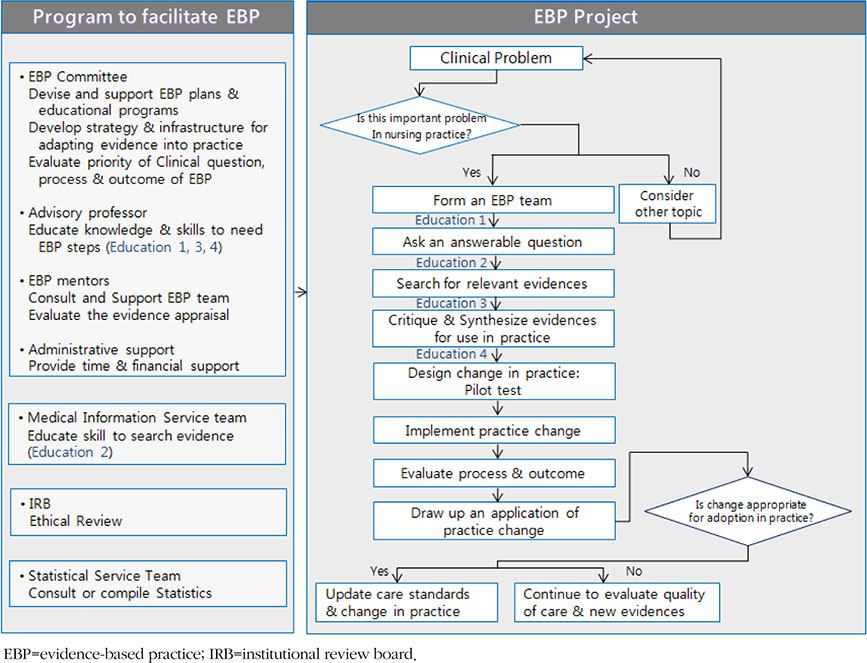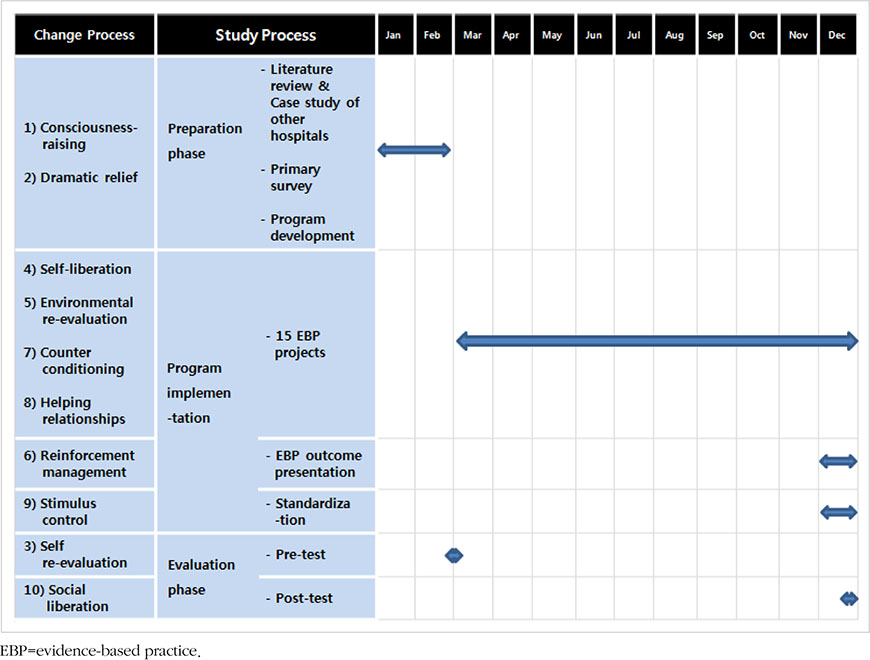1Graduate School of Clinical Nursing Science, Sungkyunkwan University School of Medicine, Seoul, Korea.
2Nursing Professional Development, Samsung Medical Center, Seoul, Korea.
3Nursing Staff Development, Samsung Medical Center, Seoul, Korea.
4Department of Nursing, Cheongju University, Cheongju, Korea.
© 2013 Korean Society of Adult Nursing



EBP=evidence-based practice.
†Wilcoxon signed rank test.
EBP=evidence-based practice. †Wilcoxon signed rank test.